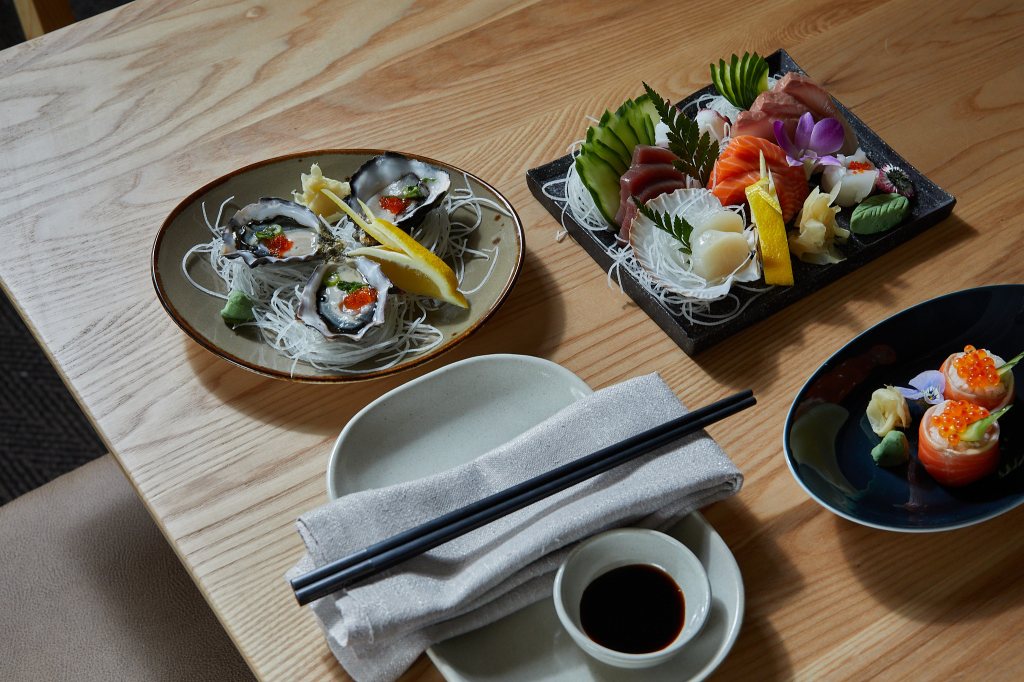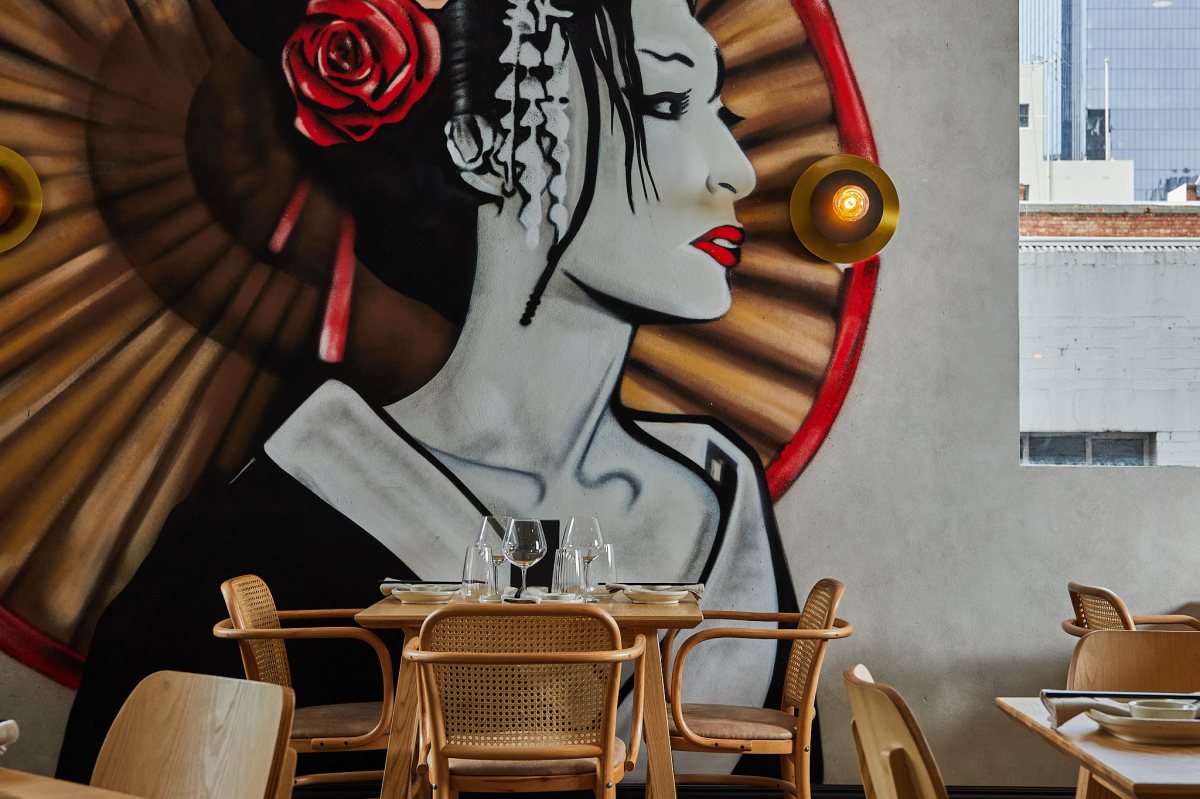Doxa Community Club has opened Kuma, its first Japanese restaurant with an elevated dining experience, in the heart of Melbourne. With city views of bustling Elizabeth Street, the fine diner, located in Central Point, offers a 1930s Shanghai-inspired decor and architectural design by South Australia’s Studio Nine.
As Club Management reported in June, former Ichi Ni Nana Izakaya head chef Federico Padayao, who has more than 25 years’ experience cooking Asian cuisine, has been appointed executive chef.

The set menu at the 120 seater includes everything from salmon lobster roll to beef tataki and a dessert of sake brulee – a sake-infused egg custard with torched caramelised sugar. The main menu moves into pan-Asian offerings and includes ‘tapas’ such as bao, Japanese rice dish donburi and a selection of udon noodles. Also included in the mains are chicken teriyaki and pork tonkatsu.
Doxa Community Club COO Anthony Simioni said that a quarter of Melbourne’s CBD already had an abundance of Asian venues aimed at the lower end of the market.
“We don’t want to go upper high end but we don’t want to go to the lower end as that market is already flooded,” he said. “It’s not silver service but it is an elevated dining experience. We will provide a more fancier dining experience with good quality fresh produce.”
Fabio Perrone (ex Pink) is the restaurant manager, while Magdalena Hassanieh heads up the beverage operations for Kuma and has designed Japanese-inspired cocktails and curated a beverage list that perfectly pairs with the food menu.
Kuma’s menu has been designed for groups of no more than 18, as well as those on date nights or those looking for a fancier Japanese dining experience.
Level 1 of Central Point, along with the rest of the venue, has undergone $6m in extensive renovations to accommodate Kuma. The new venue sits adjacent to Doxa Community Club’s other new offering, Betsy Jane cafe.
All Doxa Community Clubs donate their profits to charity and assist Doxa Youth Foundation to extend opportunities for children and young people, including youth camps and supporting education programs.


